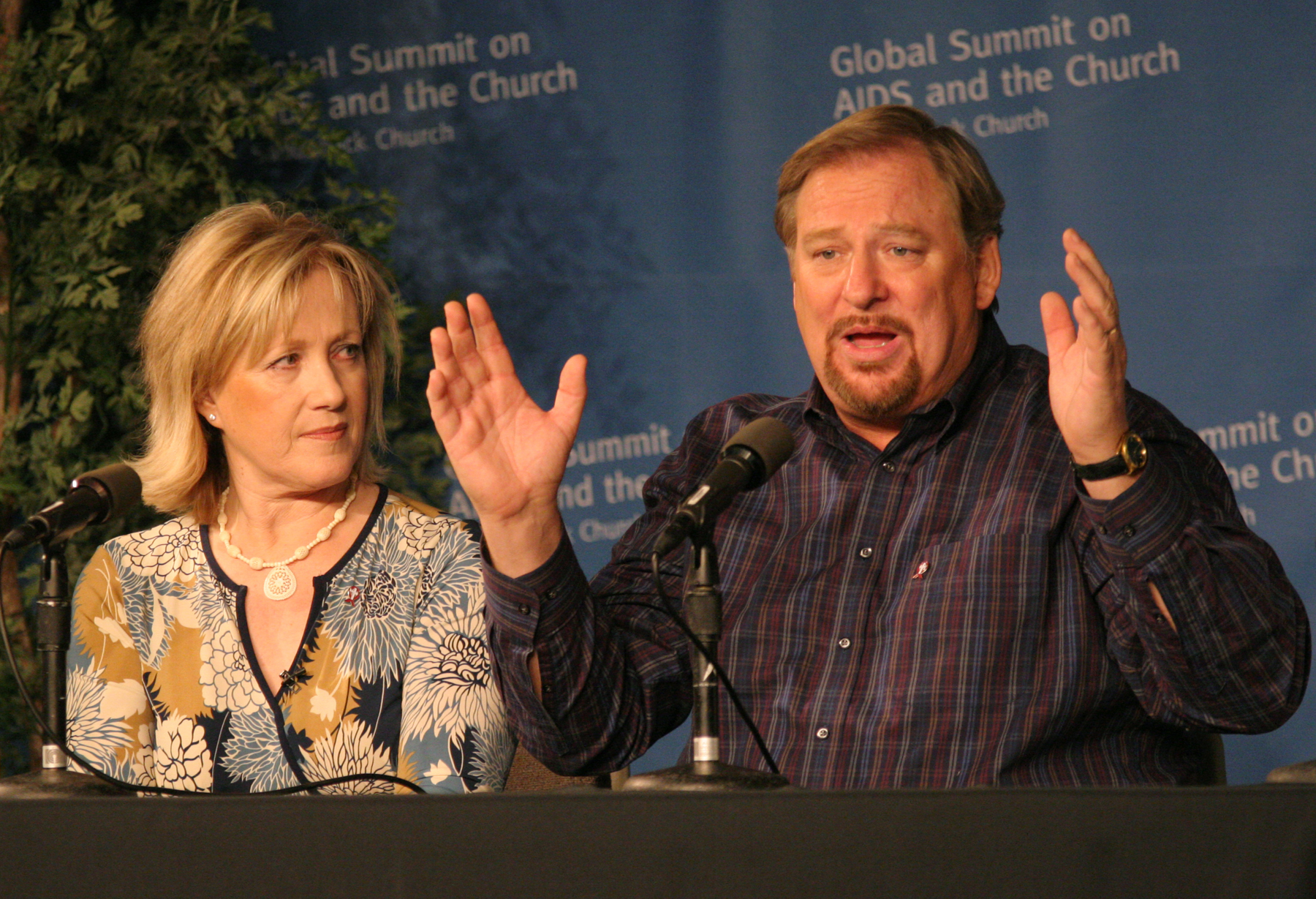
LAKE FOREST, Calif. (BP)–After too long a silence, the worldwide church has realized its responsibility as a leader in the fight against the HIV/AIDS pandemic, said Rick Warren, pastor of Saddleback Church, during the opening session of the third-annual Global Summit on AIDS and the Church.
“The church was nowhere to be found in the 1980s, and we had to repent. I had to repent. But I want to tell you that the church has come to the table, and the church is not going to flake out. The church is here to stay. This is not a flavor of the week, a flavor or the month or a flavor of the year for us.”
Warren and his wife Kay described their own wakeup call to the HIV/AIDS crisis. In 2002, Kay was confronted by the problem through a news report on HIV/AIDS and could no longer ignore her responsibility in the struggle. Through the Saddleback HIV/AIDS Initiative, created in 2003, the Warrens are challenging leaders to increase their own awareness and knowledge of HIV/AIDS so that, through their influence, the communities and churches they lead will be dedicated to solving the global problem. Because it is such an overwhelming problem, the first step is awaking to the challenge.
“I challenge you as you sit in your chair today: You are a leader. You have a voice. You can lift it on behalf of someone who has no voice. You can learn to focus it so that it makes a difference,” Kay Warren said Nov. 28.
“My conviction is that it’s not enough to manage HIV/AIDS,” she said. “We aim too low when that’s our goal. When we choose the harder goal to stop it, we’ll have the willpower and the passion to push forward and not be satisfied with millions of people being infected or affected.”
Throughout the day on Wednesday, summit attendees heard testimonies of what it means to be an individual leader in the fight against HIV and AIDS, and how that leadership can translate to others, even impacting entire nations.
Maureen Mwanawasa is the First Lady of Zambia, where one in six people are living with HIV/AIDS. She leads the Organization of African First Ladies Fight Against HIV/AIDS, a group dedicated to AIDS prevention and education on the African continent.
Mwanawasa echoed Kay Warren’s challenge for people to work toward the end of HIV/AIDS, rather than just managing the epidemic.
“To reverse the global spread of HIV, we make a special call today for a unique kind of leadership … a leadership that will not give up until the battle is won.”
Jeannette Kagame, the First Lady of Rwanda, agreed with Mwanawasa, urging leaders toward a “relentless” commitment to solving the problem. Kagame said Rwanda, long ravaged by war and disease, has been an example in the past of what can happen within the context of bad leadership. But she is hopeful for her country and for the progress she sees in the fight against HIV/AIDS.
“Now, more than ever before, we have all the tools we need to turn despair into hope for millions of people around the world,” Kagame said. “The most important tool is leadership.” When asked how Rwandans find the strength to cope with their turbulent history and become leaders in the HIV/AIDS battle, Kagame spoke of her county’s determination to move forward.
“As a nation, we’ve decided not to surrender. As a nation, we’ve seen the worst, and the people have learned a lot. We’ve taken stock of the past, and we’re building on it to change it,” she said. “We are now on the path of hope, instead of despair.”
The path of hope includes partnership with the institution of the church and with individual churches in Rwanda, Kagame said. During a media briefing after the opening session, the first ladies and the Warrens reiterated the importance of the church as distribution centers for HIV/AIDS care and prevention. In Kagame’s words, “what better place” than the church, since it is where people all over the world have traditionally turned for comfort.
It’s a strategy that has worked for one church in Cape Town, South Africa. John Thomas is senior pastor of Fish Hoek Baptist Church, a church that runs around 350 people on Sunday mornings and has one of the most extensive HIV/AIDS ministries in the country. Living Hope is the officially recognized non-governmental organization dedicated to fighting HIV/AIDS in their area. In addition to education and prevention programs, Living Hope is home to a hospice where patients can receive free medical care.
On Wednesday evening, Thomas spoke to summit attendees about the opportunity that exists for believers in South Africa and around the world to show the love of God in an unprecedented way. The church is the only organization with a great enough scope to end HIV and AIDS, he said, sharing his dream that the 36,000 churches in South Africa also would serve as 36,000 AIDS clinics.
“We are living in the day of the greatest opportunity for the church. It’s unbelievable, and it’s God’s opportunity,” Thomas said.
–30–
Meredith Day is a writer based in San Diego.

















